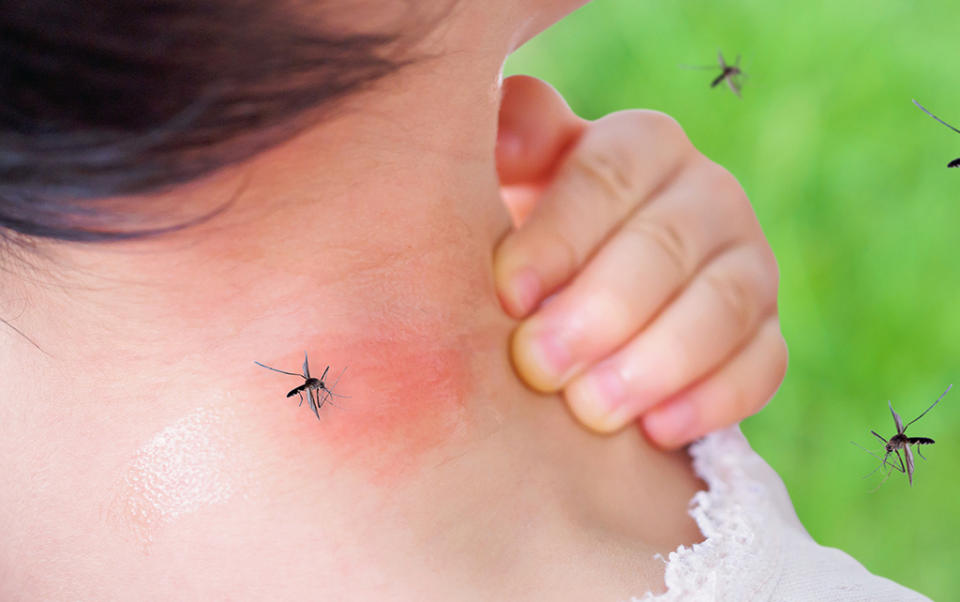Michigan is latest state to warn residents of deadly mosquito-borne virus, following 3 possible human cases
Health officials in Michigan have issued a warning to residents as they investigate three possible human cases of a deadly mosquito-borne illness.
The disease, known as Eastern equine encephalitis virus, causes brain inflammation, which can be fatal.
The three cases currently under investigation involve residents from Kalamazoo and Berrien counties, according to an Aug. 26 statement issued by the Michigan Department of Health and Human Services.

Humans aren’t the only ones affected by the dangerous disease. The statement from the Michigan Department of Health and Human Services also shared that six horses infected with the virus have all died. While there is a vaccine available for horses (there isn’t one for people), none of the horses that died were vaccinated.
Symptoms of Eastern equine encephalitis virus start to develop four to 10 days after being bitten by an infected mosquito, according to the Centers for Disease Control and Prevention (CDC). In severe cases, people may experience sudden onset of headache, high fever, chills, and vomiting, followed by disorientation, seizures, and coma.
The infection is fatal in about 30 percent of people, according to the CDC, and many survivors are left with chronic neurological problems from mild to severe brain damage.
Although infection is very rare — on average, seven human cases of Eastern equine encephalitis are reported annually in the U.S. — there are no designated treatment options for those bitten by an infected mosquito. There are no antiviral drugs to fight the disease, and antibiotics aren’t effective against the virus, according to the CDC.
Michigan isn’t the only state coping with the mosquito-borne disease. Cases have been reported in several states, including Florida and New York. Most recently, on Aug. 26, Massachusetts confirmed its fourth case of the deadly disease, which has killed one person.
Experts say that the best thing people can do to avoid the virus is to prevent mosquito bites in the first place.
“Mosquito-borne diseases can cause long-term health effects in people and even death,” Mary Grace Stobierski, Michigan Department of Health and Human Services’ state public health veterinarian and manager of the Zoonotic and Emerging Infectious Diseases Section, said in a statement. “These cases, along with confirmed cases in horses and deer in the state, stress the importance of taking precautions against mosquito bites.”
You can protect yourself by using an insect repellent. The CDC recommends looking for ones registered with the U.S. Environmental Protection Agency with ingredients such as DEET, picaridin, IR3535, or oil of lemon eucalyptus. (The EPA has a tool to help you find the right repellent for you.)
If mosquitos are in your area, cover up exposed skin by wearing lightweight long-sleeve shirts, pants, and socks. For another line of protection, the pesticide permethrin can be sprayed on clothing, including socks and shoes (not while you’re wearing them). It’s important to strictly follow the pesticide’s instructions, and not use permethrin directly on your skin.
Lastly, make sure windows (and doors, if possible) have screens that are intact to keep mosquitoes out. Also, drain any standing water, which can attract mosquitoes since it’s where they like to lay their eggs. This includes buckets, barrels, tire swings, kiddie pools, and other containers on your property, along with maintaining swimming pools.
Read more from Yahoo Lifestyle:
CDC warns of 'alarming' strain of antibiotic-resistant Salmonella: What you need to know
What pet owners should know about toxic algae blooms: 'Dogs can die within minutes'
Follow us on Instagram, Facebook and Twitter for nonstop inspiration delivered fresh to your feed, every day.

